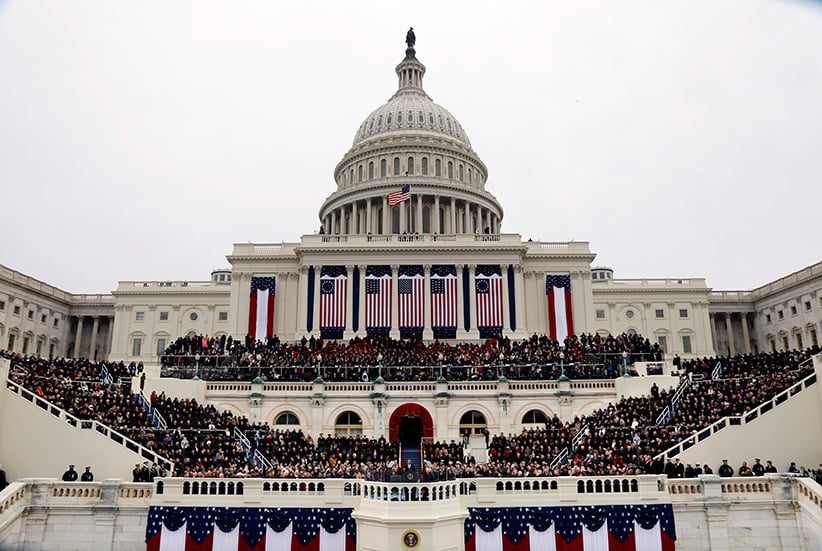What will happen on Donald Trump’s Inauguration Day?
The main event begins at noon on Jan. 20, followed by a brief Trump speech, a parade, three inaugural balls and a prayer service
President Barack Obama speaks during the ceremonial swearing-in on the West Front of the U.S. Capitol during the 57th Presidential Inauguration in Washington, Monday, Jan. 21, 2013. (Scott Andrews/AP/CP)
Share

As Donald Trump prepares to be inaugurated as the 45th president of the United States, Maclean’s is answering any and all questions you may have about the whys and wherefores of the pomp and circumstance. Read more answers from our FAQ series.
The whole thing technically starts on Jan. 19 with a wreath-laying at the Arlington National Cemetery in Virginia, where both Donald Trump and vice-president-elect Mike Pence will take part in a ceremony in memory of fallen soldiers. It will be followed by a “Make America Great Again” welcome concert at the Lincoln Memorial in Washington D.C. (No word on who’s performing yet.)
But the main event comes on Jan. 20, when Trump is officially sworn in as 45th president of the United States at noon. Why noon? That’s just the time chosen and written into the Constitution for the official end time of the outgoing president’s term. Trump will repeat the words: “I do solemnly swear (or affirm) that I will faithfully execute the office of president of the United States, and will to the best of my ability, preserve, protect and defend the Constitution of the United States.” And then, just like that, he’s officially the president of the United States.
Next comes the inauguration speech, where Trump’s words will be transcribed and studied alongside other great inaugural addresses. John F. Kennedy famously said in 1961: “Ask not what your country can do for you but what you can do for your country.” In 1933, Franklin Roosevelt said: “The only thing we have to fear is fear itself.” Four years ago, in his 18-minute address, Obama said: “We recall that what binds this nation together is not the colours of our skin or the tenets of our faith or the origins of our names. What makes us exceptional—what makes us American—is our allegiance to an idea, articulated in a declaration made more than two centuries ago.”
While inauguration speeches vary in length, Trump is reportedly writing his speech himself and plans to keep it short and impactful. “He doesn’t want it to be cold,” presidential historian Douglas Brinkley told CNN after meeting with Trump in December. “He doesn’t want people standing out in the cold.”
Then president Trump will celebrate with a parade and the Inaugural Ball—three balls in fact, one with military and services personnel, the other two for invited guests. (The Obamas, in comparison, showed up at 10 inaugural balls in 2009.) Interested attendees can inquire online about when tickets go up for purchase for an evening that “will feature dancing and entertainment.” (Who that entertainment will be is still to be announced, it appears. Earlier this week, the popular DJ Moby literally laughed off an apparent invite to perform at one of the balls.)
Lastly, a national prayer service the following morning will mark an end to the festivities—and the start of the work of leading a country.